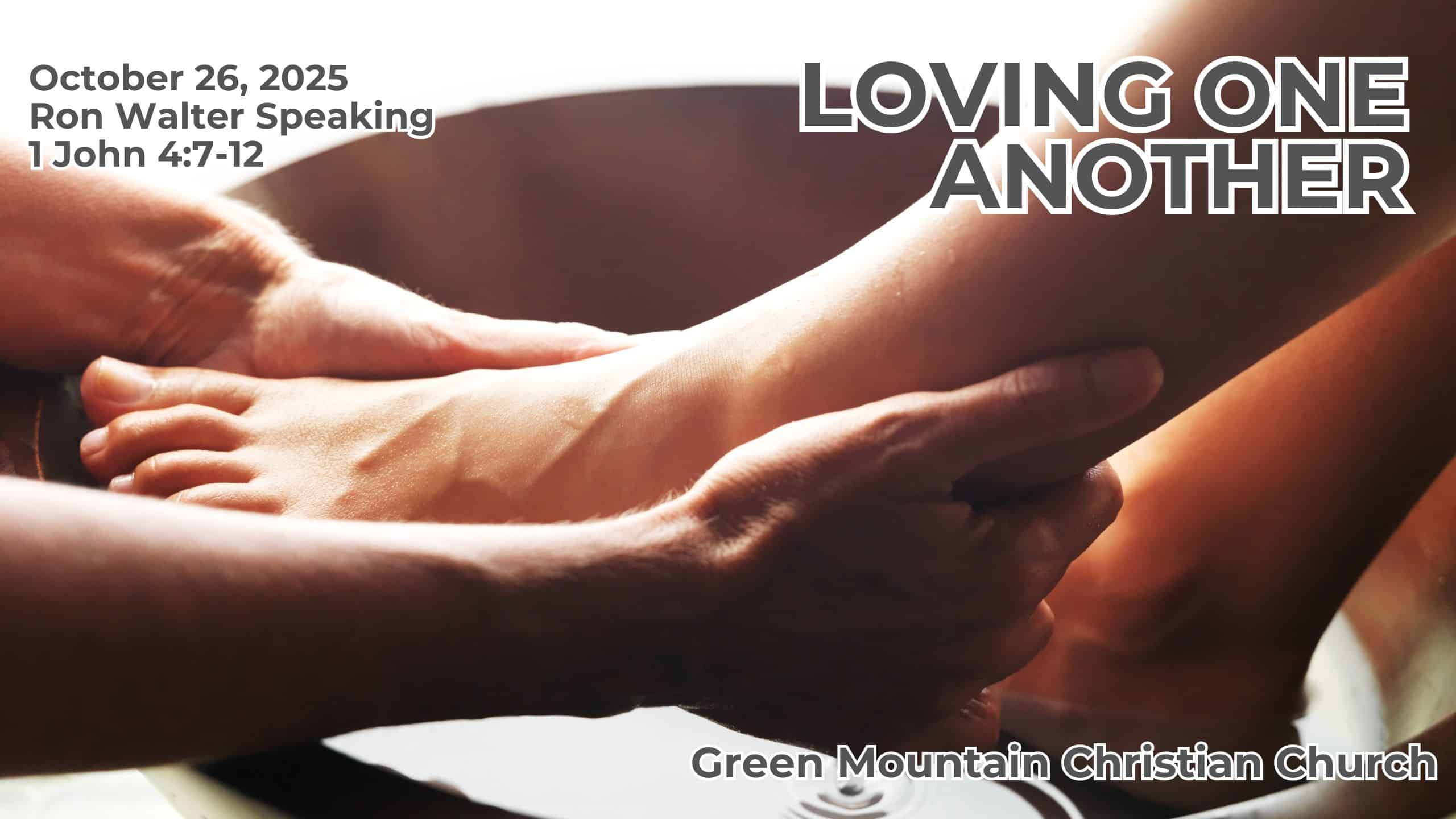Have you ever experienced something completely different from what you expected? Sometimes we think we’re getting one thing, but it turns out to be something entirely different. This happens more often than we realize, especially when it comes to understanding what love truly means.
Video:
Audio only
What Does It Mean to Be “Curved In on Ourselves”?
Augustine and later Martin Luther described a concept called “incurvatis in se” – being curved in on oneself. Luther explained that our nature has become so deeply curved inward that we bend even God’s best gifts toward ourselves. We take everything meant to look outward toward God and others and make it about us instead.
This tendency affects how we understand love. When we say “I love the Nebraska Cornhuskers” or “I love lasagna,” we’re really talking about ourselves – our identity, our preferences, what makes us feel good. Too often, this same self-centered approach creeps into our relationships.
How Does Scripture Define “Love One Another”?
The phrase “love one another” appears eleven times in Scripture, using the Greek word “agape.” This isn’t just any kind of love – agape represents a love that puts the other person first. It’s defined as “seeking the true good of the other, even at the expense of self.”
In First John 4:7-8, we read: “Dear friends, let us love one another, for love comes from God. Everyone who loves has been born of God and knows God. Whoever does not love does not know God, because God is love.”
God is the very definition of love, and understanding His character helps us learn how to truly love one another.
What Example Did Jesus Set for Loving Others?
Jesus gave His disciples a clear command in John 13:34-35: “A new command I give you: Love one another. As I have loved you, so you must love one another. By this everyone will know that you are my disciples, if you love one another.”
The key phrase is “as I have loved you.” Jesus set the bar high by:
- Washing His disciples’ feet
- Giving His life on the cross
- Willingly going through death for others
- Praying “let your will be done” even when facing suffering
This example shows love that says, “I’m willing to go through this for you.”
How Can We Practice Sincere Love?
Paul provides practical guidance in Romans 12:9-10: “Love must be sincere. Hate what is evil; cling to what is good. Be devoted to one another in love. Honor one another above yourselves.”
He continues with specific actions that demonstrate sincere love:
- Share with those in need
- Practice hospitality
- Bless those who persecute you
- Rejoice with those who rejoice
- Mourn with those who mourn
- Live in harmony
- Associate with people of all positions
- Avoid pride and conceit
What Does It Look Like to Share Life Together?
Paul’s relationship with the Thessalonian church provides a beautiful example. In 1 Thessalonians 2:8, he writes: “Because we loved you so much, we were delighted to share with you not only the gospel of God, but our lives as well.”
A church that loves one another is a church that shares life and faith together. This means:
- Encouraging one another
- Providing accountability
- Sharing comfort during difficult times
- Celebrating highs together
- Getting involved in each other’s lives beyond Sunday mornings
Why Do Many Churches Struggle with Deep Love?
As Bobby Harrington observes, “Most churches today are not designed to cultivate love. Large gatherings and packed schedules often leave little room for deep relational investments. Many Christians are so busy focused on preaching and praise and worship and programs that they struggle to find the time to love people well.”
The challenge is moving beyond surface-level interactions to genuine, life-sharing relationships.
Life Application
This week, challenge yourself to reverse the “curved inward” tendency by actively seeking ways to love others as Christ loved us. Instead of asking “What can I get from this relationship?” ask “What can I give?”
Consider these questions as you reflect on your approach to loving others:
- Am I loving others primarily for what they bring to my life, or am I genuinely seeking their good?
- How can I move from wanting to be fed to wanting to feed others?
- What practical steps can I take this week to share not just pleasantries, but actual life with someone in my church community?
- Where do I see opportunities to encourage, comfort, or celebrate with others around me?
The goal isn’t perfection, but transformation – becoming people who are curved outward toward others and upward toward God, rather than inward toward ourselves. True love seeks the good of others, even when it costs us something personally. This is how the world will know we are Christ’s disciples.

